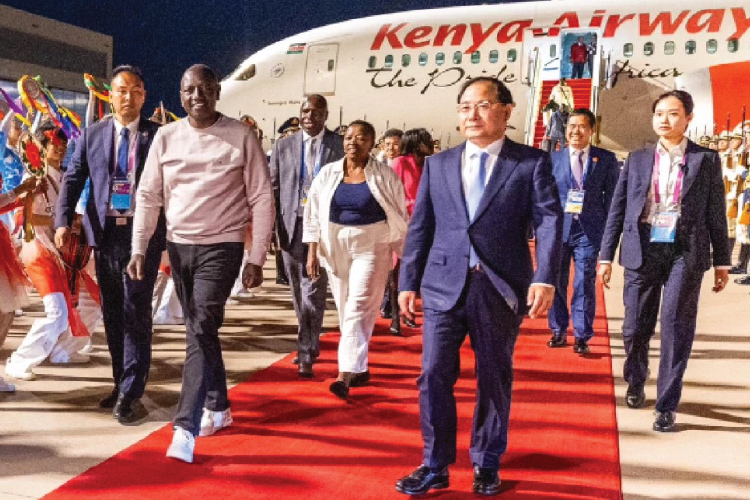- Home
- About
- Experts
- Publications
- Our Centers
- Policy Forums
- Speeches
- Events
- Multimedia
- Mon-Fri (9:00 am-7.00 pm)
- [email apolicyinstitute@gmail.com]
- +254 706 670 965
- Mon-Fri (9:00 am-7.00 pm)
- [email apolicyinstitute@gmail.com]
- +254 706 670 965

Manifestly, the 2024 Summit of the Forum for China- Africa Cooperation (FOCAC) is rekindling the dream of co-prosperity of civilizations, for long cherished and shared by Africa and China. Obviously, the concept of co-prosperity or shared prosperity is a bold moral rejection of the idea of ‘clash of civilizations’. Human cultures and civilizations are not legions, armour-plated and ready for a cataclysmic war. Truth be told, Human civilizations cannot be the dreaded Sword of Damocles hanging perilously over our heads. Instead, a more blissful idea is that of our world as a commonwealth of civilizations. This is not a pipe-dream but the reality propelling global developments. Certainly, the concept of co-prosperity is the kernel of the United Nation’s transformative clarion cry of “Leaving no one behind”. This is the spirit of the UN 2030 Agenda for Sustainable Development.
Humanity’s collective history is about tapping into the tapestry of experiences, exchanges and contributions by all civilizations to our shared past. But the dominance of hegemonic narratives undergirding the global hegemony of the West have tended to eclipse this idea of commonwealth of civilizations. This is the poignant point that the British historian, Peter Frankopani is making in The Silk Roads (2015). There is not one Silk Road as architects of the hegemonic narrative of the world as a triumph of one civilization—the West and its assumed Greco-Roman ancestry—would want us to believe. The truth is: human civilizations met along the many enchanted “Silk Roads” where they exchanged goods, services and ideas about values, religions, cultures, economies and forms of government. War and peace are part of this story.
In the run up to the 2024 FOCAC Summit, African and Chinese intellectuals and thought leaders in the media, think tanks and academic institutions converged in Beijing for the 6th Forum on China- Africa Media Cooperation & Think Tank High-Level Dialogue” under the theme of “Joining Hands on the Path Towards Modernization”. The forum highlighted the historic mission of intellectuals and thought leaders in the global South, including China and Africa, to paint on the canvass of history the beautiful story of world civilizations working hand in glove to remake the World into what Chinese President Xi Jinping aptly describes as “a community of shared future for mankind”.
We live in the most interconnected world in human history. I wish to examine four areas global possibilities that China is leveraging to shape the emerging multipolar world order. First, globalization offers endless opportunities for new development partnerships. It is enabling people, companies, and governments of different nations to interact and collaborate in an interconnected world where people, goods and services flows and ideas knows no bounds. Borders are becoming increasingly porous, allowing the movement of people and ease of transaction in goods and services across the world. China is championing globalization at a time when countries are electing walls and turning populism, narrow nationalism (‘America First’), isolationism, protectionism and other anti-globalization trends.
It is this idea of human civilizations living harmoniously side by side as equal and mutually respecting partners that birthed the Forum on China-Africa-Cooperation 24 years ago. FOCAC is essentially about the co-prosperity of civilizations which has been derailed from time to time by hegemonic projects.